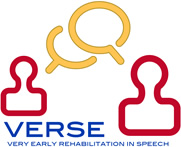
The Trustees of The Tavistock Trust for Aphasia are pleased to announce that they are part funding the Very Early Rehabilitation in Speech: An RCT of aphasia therapy after stroke (VERSE) research project at Edith Cowan University (ECU) in Australia. Over the next two years, this grant will support valuable research investigating the effect of early intensive aphasia therapy in the first six months following stroke.
Aphasia, a difficulty comprehending and expressing language affects more than 30 per cent of people who suffer a stroke.
Previous, smaller studies completed at ECU have shown that patients who received daily aphasia therapy as soon as possible following their stroke experienced less communication difficulties than those who received traditional treatment, which is usually provided at a much lesser intensity.
The research team, led by Associate Professor Erin Godecke, believe that the first 90 days post stroke represent a “window of opportunity” for neural changes to occur in the brain as part of neuroplasticity. Early therapy is thought to give people with aphasia a ‘head-start’ in recovery while the brain is open to natural healing processes. We used to think that aphasia therapy had to be done early, or the “window of opportunity” would close. There is also recent evidence showing that people with aphasia do very well in the chronic phase of recovery with intensive therapy. This should give hope to people with chronic post-stroke aphasia, and those who care for them, that significant gains can be achieved with intensive therapy years after stroke.
The VERSE study involves 246 participants from 16 sites across Australia and New Zealand. The study will provide vital information of international significance to the current evidence base for early aphasia recovery. VERSE will make the study resources available to clinicians and researchers around the world. This involves therapy training, therapy monitoring techniques and trial data. In doing this, the researchers hope to drive genuine and measurable clinical improvement in access to and quality of aphasia treatment for people after stroke.